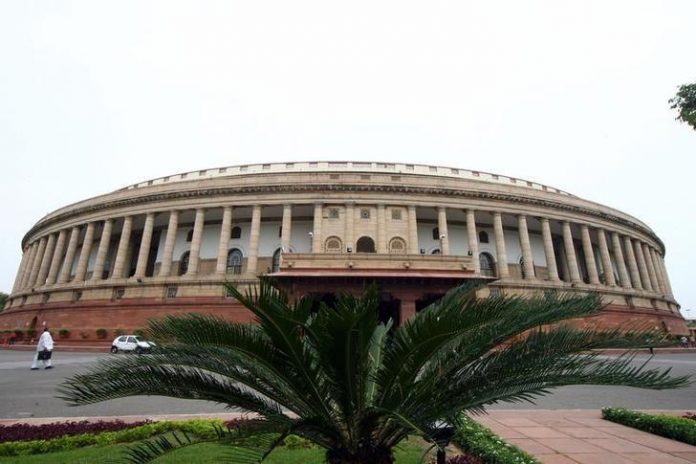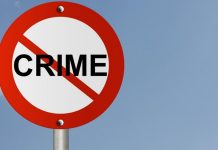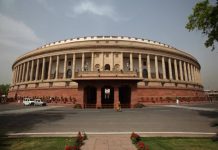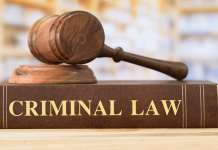This article is written by Surbhi Jindal, a law student at Dr. B.R. Ambedkar National Law University, Haryana. Through this article, she has discussed the concept of criminalization of politics in the Indian context exhaustively.
It has been published by Rachit Garg.
Table of Contents
Introduction
India gained independence from British Rule in 1947, but a question to ponder over: Is India still an independent nation? It is still being governed by the people who are holding criminal charges against them. Do you think that the country of India will progress in such a way?
India is a democratic country, with a parliamentary system of democracy, which means that the country is governed by elected representatives. It has many political parties and elections are held every five years. The scope and interest in joining politics are increasing day by day but with this, the percentage of criminal participation has also increased.
Even the Hon’ble Supreme Court of India, from time to time, has expressed its anguish over the matter of increasing criminalization of politics in the Indian scenario.
Justice Rohinton Fali Nariman stated that the Supreme Court is bound by the constitutional principle and doctrine of separation of powers. Hence, it cannot make laws and regulations on this matter. Parliament can make laws, but the question arises when India’s Parliament will take steps to clean up Indian politics? Will it ever take action?
The objective of this article is to analyze the causes and impact of the criminalization of politics in India exhaustively. Furthermore, it also discusses how we can take steps to cleanse our Indian politics to make India a better nation.
Let us understand the issue of criminalization of politics that is growing day by day in India. But before we move forward, let us see why many criminals are interested in joining politics in India? What is the reason behind it?
Why are criminals joining politics in India
Criminals are joining politics in India for a variety of reasons. The first reason is that crime pays. Getting into the legitimate sphere of politics is a way to legitimize one’s gains from crime and power their finances further.
The second reason is the lack of opportunities in other fields. In some cases, criminals have been pushed out of their traditional fields due to economic liberalisation and changing labour markets, and so they see politics as an opportunity to make a living without breaking any laws.
The third reason why criminals join politics is that they tend to be more highly motivated than other politicians and thus more likely to deliver on electoral promises, such as providing employment or development projects which can improve people’s lives.
Defining the concept of criminalization of politics
Criminalization is defined as an act when an activity is turned from being legal to illegal. It is the making of actions committed by individuals illegal by any judicial decision or law, and turning the individuals committing those acts into criminals. Criminalization of politics is defined as the situation when criminals participate in the politics of the government, i.e., contest elections and get elected to the Parliament and state legislatures.
This growing menace has impacted our society so rapidly that principle concepts of democracy like the rule of law, fundamental rights, free and fair elections, accountability, and credibility have turned into a just dream and lost their credibility in the real world.
India is one of the world’s largest democratic countries. Elections should be conducted in a free and fair manner, and they must attract the country’s best talent.
The idea of democracy is always based on the will of the people. The intention of the people must always conform to the rule of law. But the choice of people has been undermined by the existence of money and muscle power, which largely affects politics.
Criminals should have no place in the sacred electoral process and therefore, it is important to curb this criminalization in politics.
Statistical analysis of criminalization of politics
The menace of criminalization of politics is gradually degrading the spirit of our Indian democracy. India claims to be the world’s largest democracy, but it cannot be called a democracy of ideal representatives.
Abraham Lincoln, in his Gettysburg address on November 19, 1863, defined democracy. He said, “Democracy is the government of the people, by the people and for the people.” But now, democracy is only seen in the books. In such a situation, how can the welfare of society prevail?
As per the Association for Democratic Reforms (ADR), the chances of winning by people facing criminal charges are more than for innocent and clean-handed people. ADR is an organization that has been working continuously to bring electoral and political reforms since 1999. Let us look at the statistical data of the past three elections.
| Year | MPs with pendingCases (%) | MPs with seriousCriminal cases* (%) |
| 2019 | 43 | 29 |
| 2014 | 34 | 21 |
| 2009 | 30 | 14 |
| *rape, murder, kidnapping, crimes against women |
As per the above data, during every election, a consistent increase in criminals participating in the elections process can be seen. In the year 2009, 30% of MPs in Lok Sabha were against criminal charges. In 2014, 34% of MPs in the Lok Sabha faced criminal charges. The percentage was extremely high in the last Lok Sabha elections. 43% of the members in Lok Sabha were facing criminal charges and 29 % had charges of committing serious crimes.
Such a bad condition of a democratic country disheartens. People vote out of fear. Goondas and Mafias are forcing them to give votes to a particular party. Political parties in order to fulfill their political agendas give them some promises in the form of benefits which are forgotten as soon as the election process is over. Goondas and Mafias have always been a part of the electoral process since the birth of Indian democracy.
The recent report on ‘Analysis of Criminal, Financial, and Other background details of Union Council of Ministers, Post Cabinet Expansion on July 7, 2021″ by National Election Watch (NEW) and Association for democratic reforms (ADR) analyses the latest affidavits by 78 ministers including Hon’ble Prime Minister from 2019 Lok Sabha, present Rajya Sabha, and Assembly elections. The criminal background in the recent cabinet is summarized here as follows:
- Out of 78 ministers, 33 (42%) ministers have declared criminal cases against them.
- 24 (31%) ministers have reported serious criminal cases against them, such as rape, murder, robbery, etc.
- Four ministers have cases against them related to Section 307 of the Indian Penal Code, 1860.
- Five ministers have cases against them related to promoting communal disharmony.
- Five ministers have declared cases of electoral violations against them.
Furthermore, ADR also stated in his report that the proportion of Union ministers who have declared criminal cases against them has risen by 3%.
Causes of criminalization of politics
Muscle power
The scenario is changing today more often. Now, the criminals are taking the reins of power into their hands. During elections, it is seen that politicians deliver eloquent speeches expressing their hatred towards crime and promising to eliminate corruption in the country. They lay stress on eliminating the use of muscle power in politics. But this is hardly implemented.
Imagine that the person himself charged with a crime is giving himself a long and beautiful speech at elections for eliminating crime in an area. How ironic is it? First Past the Post system, also known as the simple majority system, works on the principle that a maximum number of votes implies winning a candidate.
An ideology that works behind adopting the method of muscle power is that if one party cannot secure faith in society, then fear and violence may aid them in the same. When there is a nexus between political parties and criminals, the most dangerous elements in society take birth.
Money power
Besides muscle power, black money and funds from the mafia are also significant causes of criminalization in politics. In this context, K.C. Suri believes that since ancient times, the use of money and muscle power by political elites to win elections has been completely wrong. “Large individual politicians, not just political elite, are having a nexus with criminals and this has further channelized social fissure as one of the formidable factors to get through elections.”
Money accumulated through unlawful acts also acts as one of the primary reasons for increasing criminalization in politics. This amount of money becomes an easy way to buy voters and win elections. The political parties easily buy the majority of voters. It will also provide a breeding ground for another menace called uncontrolled corruption.
Corruption
Corruption is also one of the major causes of the criminalization of politics. The majority of candidates contesting elections require money, funds, and donations. It is pertinent to note that corruption directly gives rise to contempt of the law. There is a direct relationship between contempt of law, criminalization of politics, and sin. When contempt of law combines with the criminalization of politics, it gives birth to flourishing corruption.
Growing corruption ultimately leads to the criminalization of politics. Corruption has crept into almost every corner of the Indian political system.
Divisions in the Indian political system
The Indian political system is based on divisions in which our Indian society exists. Criminals take advantage of this division and enter the arena of politics. They smartly portray them as the protector of the respective class, caste, religion, and community. In general, while choosing a candidate, hardly the criminal background of a candidate is scrutinized. People tend to vote based on the candidates’ caste, ethnicity, religion, community, and linguistic lineage.
No retirement policy in Indian politics
The other major problem lies in the retirement policy in Indian politics. There is no retirement policy for Lok Sabha members, and hence some members never retire. The issue of family fiefdom seriously jeopardizes the careers of budding politicians and lawyers. The slow working and high rate of pending cases further aggravate the problem of the criminalization of politics.
Impact of criminalization of politics
When lawbreakers get elected as lawmakers, it seems impossible for a country to head towards the path of progress. The working efficiency of Parliament while making laws is reduced, and the effectiveness of administration gets hampered. As a result, the general public loses credibility in the functioning of Parliament.
Patronage by politicians and the adjournment culture further aid in preventing speedy trials against criminals. Corruption levels increase, and it weakens state institutions such as the legislature, bureaucracy, and judiciary. It sets a bad example against the youth and gives support to the violence prevailing in society.
Political standards are continuously going down. The reason is the criminalization of politics in Indian democracy. Politics has lost its earlier identity of members serving society selflessly. It more often presently attracts persons with criminal backgrounds having own- pursuit interests.
It is the country that has to suffer. There has been enough stress laid on the shoulders of lawmakers to come up with the amendments in law but to date, the situation remains the same.
Role of judiciary in controlling criminalization of politics
From time to time, the Honorable Supreme Court has taken steps to curb India’s increasing criminalization of politics. Various judgments, views, and decisions have been put forward in this regard. But despite this, nothing significant has happened. The Apex Court rightly pointed out in its statement and most of us would indefinitely agree to the statement:
“No one can deny that the menace of criminalization in the Indian political system is growing day by day. Also, no one can deny that for maintaining the purity of the political system, persons with criminal antecedents and who are involved in the criminalization of the political system should not be permitted to be lawmakers.”
In August 2021, the bench of Justices Rohinton Fali Nariman and B.R. Gavai from the Hon’ble Supreme Court expressed their anguish over the criminalization of politics. The Hon’ble Court observed the following:
“The political parties refuse to wake up from deep slumber. Cleansing the polluted stream of politics is obviously not one of the immediate pressing concerns of the legislative branch of government.”
The Supreme Court ordered the political parties in its February 2020 contempt petition to comply with its judgment of Public Interest Foundation and Ors. vs. Union of India and Anr. (2018). However, the orders of the decision were not followed by the various political parties. The court observed that the Bharatiya Janata Party (BJP), the Janata Dal (United), the Rashtriya Janata Dal (RJD), and the Congress were guilty of contempt because they did not comply with the orders of the Hon’ble Supreme Court. It imposed a fine of 1 lakh for not disclosing the complete details of criminal antecedents of candidates in the Bihar elections in 2020. Apart from this, the Communist Party of India and the National Congress Party were asked to deposit five lakhs each because they did not comply with the orders of the Hon’ble Supreme Court at all.
The present August 2021 contempt petition was filed by Advocate Brajesh Singh, who alleged that the various political parties did not obey the court’s orders during the Bihar assembly elections in 2020. After taking the contentions and arguments put forward, the Bench noted that most political parties have either not given full disclosure or have not followed the format it was to be delivered.
In its latest judgment, the following were the orders and amendments made by the bench in its previous ruling in the year 2020:
- ECI has been directed to create a mobile application that contains all the information about the criminal antecedents of the candidates so that the general public can have access to information conveniently.
- ECI has been directed to create a separate monitoring cell for checking whether the parties are complying with the court’s order or not. It has also referred them to bring such instances of the breach to the knowledge of the court.
- The Hon’ble Supreme Court directed the political parties to set up a new tab on their homepage of websites named ‘candidates with criminal antecedents’ to make it easier for voters to know more information.
- The court has modified its earlier order of February 2020, directing parties to publish details within 48 hours of selection and not two weeks before nomination.
- It also observed that a unique bench at the Supreme Court might be formed to monitor the cases involving accused MPs and MLAs.
Further, the issue was taken into cognizance mainly of two separate cases of criminalization in Indian politics.
- Cases against the politicians: The Hon’ble Supreme Court observed that the state governments could not withdraw the cases against legislators without the permission of respective state high courts.
- Parties punished: Nine parties were held guilty of contempt for not disclosing complete details in Bihar 2020 elections. Further, eight of them were also fined with heavy penalties.
In 1997, high courts were directed by the Honorable Supreme Court not to suspend the conviction if that person is found convicted under the Prevention of Corruption Act, 1988.
In the case of Ramesh Dalal vs. Union of India (2005), the Hon’ble Supreme Court pronounced that a sitting member of Parliament and a member of the state legislature can also be disqualified from contesting elections if he is convicted for not less than two years for imprisonment by the court of law.
Furthermore, it was observed in K Prabhakaran vs. P Jayarajan (2005) that, “those who break the law should not make the law. Generally speaking, the purpose sought to be achieved by enacting disqualification on conviction for certain offences is to prevent persons with criminal backgrounds from entering politics and the house – a powerful wing of governance. Persons with a criminal background do pollute the process of election as they do not have many holds barred and have no reservation from indulging in criminality to win success at an election”.
Public Interest Litigation(PIL) was filed in the Supreme Court in 2011, seeking to issue guidelines and lay framework to be followed to curb the menace of criminalization of politics and debar those charged with a crime from contesting elections.
Section 8(4) of the Representation of the People Act, 1951 provided a respite to a member of Parliament or a member of the legislative assembly/legislative council. If the convicted member filed an appeal within three months, then that application was accepted by the Hon’ble Supreme Court. This implied that the member could continue his membership of the concerned legislature until the court disposed of the application. The court struck down this provision in the case of Lily Thomas vs. Union of India (2013). At present, a member of Parliament or member of state legislature stands disqualified if they are convicted of an offence provided in Section 8(1) or 8(2) of the Representation of People Act, 1951. Also, a person remains disqualified from holding a seat after six years of release. Section 8(4) was held unconstitutional since Parliament’s work is to make disqualification laws and not secure the seats for membership.

The Hon’ble Supreme Court held in People’s Union for Civil Liberties vs. Union of India (2018) that the voter has the fundamental right under Article 19(1)(a) of the Indian Constitution to know about the candidates who are contesting the election.
In the year 2020, the Hon’ble Supreme Court reiterated its 2018 order. The main aim is to discourage candidates with criminal backgrounds from contesting elections. Political parties should explain why they have chosen a candidate with a criminal background. The candidate selection must be based on merit, not on winnability, the Supreme Court observed. The information must be published on social media platforms, local and national newspapers, and the website. The same information needs to be submitted to the election commission within 72 hours after declaring the candidate’s name. A compliance report must be filed with the Election Commission or should be ready to face contempt action. It is an undeniable fact that electoral and judicial reforms are the need of the hour.
The way forward
It is an undeniable fact that criminals should not be allowed to contest elections at any cost. They pollute the true spirit of democracy. But what if the person has only been accused? Should it only be based on an accusation, be barred from contesting elections? The answer is no. Our criminal justice system works on the legal principle of ‘innocent until proven guilty’. Every innocent man has the right to contest elections. Then what is the way ahead?
In 2017, the Supreme Court ordered special fast-track courts for such matters. The ultimate advantage would be that since the cases will be decided at the earliest and hence, it could be clear whether that person can contest elections or not.
There is also a need for amendment in the Representation of People Act, 1951. Section 7 to 11 of this Act discusses a person who can contest elections. The provisions need to be revisited to pass the test of time and changed social circumstances.
Committees such as the Vohra Committee and Dinesh Goswami Committee have also given various recommendations. These recommendations must be taken into account as soon as possible. Electoral reforms and judicial reforms are the need of the hour. But it is important to note that it is not only the state’s duty but also of citizens to contribute to maintaining the true spirit of democracy.
Conclusion
Through the above facts and analysis, it can be observed that the corrupt practices of political parties have steadily increased. Various methods have been employed by the political parties to win elections. From time to time, the Hon’ble Supreme Court, Election Commission of India, and Parliament have taken steps to curb this menace, but nothing substantial has been achieved so far.
Stringent laws should be passed, and assistance should be given to constitutional institutions such as the Election Commission of India. It should be given the power to audit the financial accounts of political parties. The other way is to bring the financing of political parties under the ambit of Right to Information (RTI). The problem is a lack of political will, which needs to be addressed by politicians at the earliest. Deeper systematic reforms are required at the earliest.
Our judiciary is indeed taking steps and trying its best to cope with the increasing criminalization of politics. But now, the onus shifts on the Parliament since it has been granted powers under our Constitution to adjudicate on the law-making powers. It’s time for India to become truly an independent and progressive nation.
References
- https://timesofindia.indiatimes.com/readersblog/hail-to-feminism/criminalisation-of-politics-24324
- https://www.thehindu.com/opinion/lead/criminality-in-the-indian-political-system/article5372634.ece
- https://www.hindustantimes.com/india-news/nation-losing-patience-sc-on-criminalisation-of-politics-101628620583327.html
- https://indianexpress.com/article/opinion/columns/criminalisation-of-politics-must-be-curbed-7451116/
Students of Lawsikho courses regularly produce writing assignments and work on practical exercises as a part of their coursework and develop themselves in real-life practical skills.
LawSikho has created a telegram group for exchanging legal knowledge, referrals, and various opportunities. You can click on this link and join:
Follow us on Instagram and subscribe to our YouTube channel for more amazing legal content.
 Serato DJ Crack 2025Serato DJ PRO Crack
Serato DJ Crack 2025Serato DJ PRO Crack










 Allow notifications
Allow notifications


